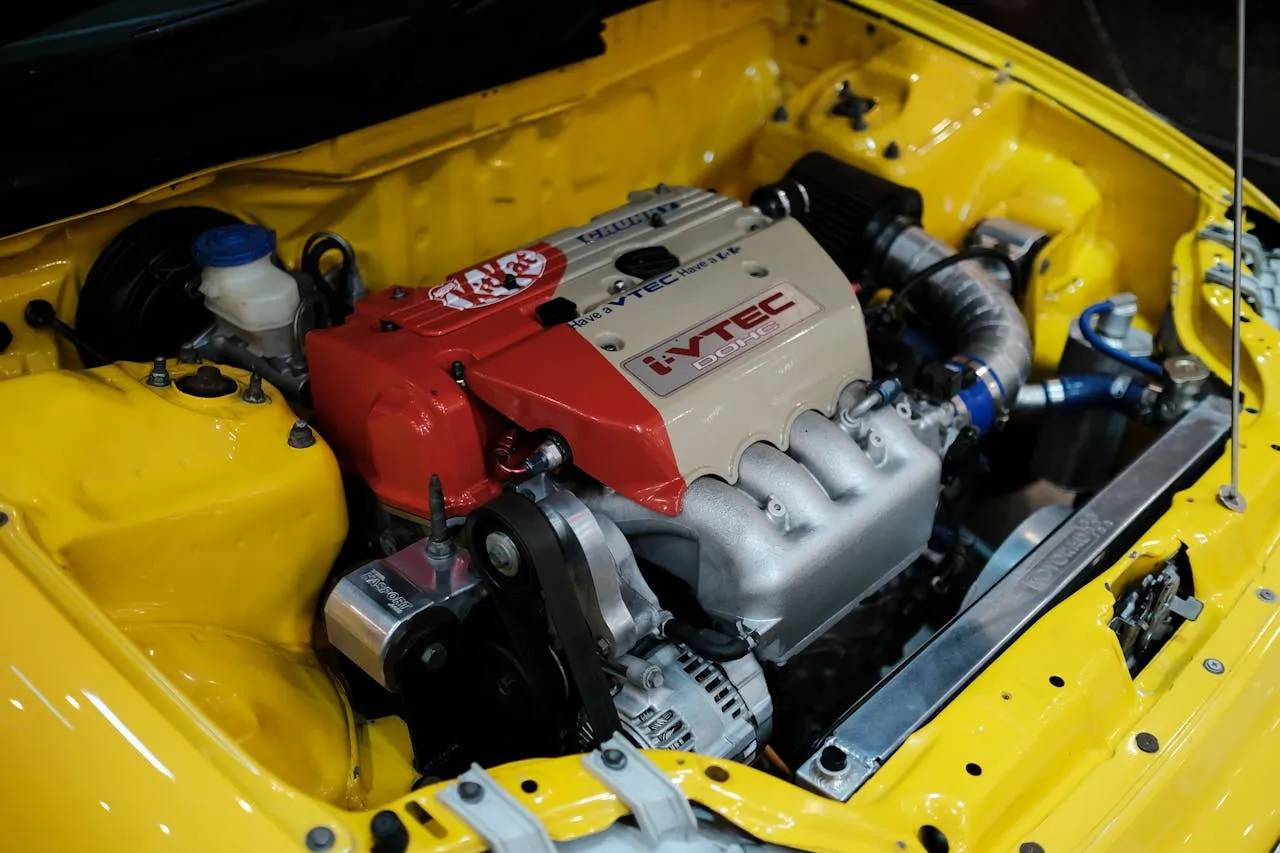
AGCO Power Showcases Groundbreaking Sustainable Powertrain Innovations at Agritechnica 2025
At Agritechnica 2025 in Hanover, AGCO Power will take center stage by unveiling its bold and forward-looking vision for the next generation of sustainable powertrain solutions for agricultural and forestry machinery. The company’s presentation will highlight a blend of advanced diesel engine technologies and low-carbon innovations, reflecting AGCO Power’s commitment to helping farmers transition to cleaner, more efficient, and more cost-effective energy solutions.
AGCO Power’s exhibition will showcase several key innovations, including the new-generation CORE diesel engine family, the 8-liter, 252 kW CORE80 engine powering the Fendt 800 Vario Gen5, the AGCO Power CO₂ Calculator concept, and a 150 kWh battery prototype developed in-house. Also featured will be the company’s remanufactured engines, designed to extend machinery life cycles while reducing both costs and environmental impacts.
According to Juha Tervala, Vice President and General Manager of AGCO Power, the company’s mission is to create versatile energy solutions that suit the complex and evolving needs of modern agriculture.
We believe the future of agricultural energy lies in a smart combination of fuels and technologies,” said Tervala. “There is no single solution. Instead, we are exploring a wide range of energy sources—diesel, biofuels, and electrification—while investing heavily in R&D and clean energy laboratories. Collaboration across the industry will be key to achieving a sustainable future.
AGCO Power has long been recognized as a trusted developer of high-performance engines and power systems for AGCO’s renowned tractor brands—Fendt, Massey Ferguson, and Valtra—as well as for other off-road machinery and industrial applications.
A Glimpse Into the Future: The 150 kWh Battery Concept
Among AGCO Power’s most exciting world premieres at Agritechnica 2025 is its concept battery of the future—a significant step toward electrified agricultural machinery. Designed and developed entirely in-house, the battery utilizes NMC (Nickel Manganese Cobalt) cell chemistry and boasts a 150 kWh capacity.
The company continues to monitor emerging battery chemistries, including solid-state technology, as part of its strategy to assess potential applications in heavy-duty agricultural settings. Kari Aaltonen, Engineering Director at AGCO Power, emphasized the growing potential of battery systems for farming operations:
For farmers aiming for zero-emission operations, battery-electric transmission currently represents the most viable option. Many routine agricultural tasks can already be handled by tractors equipped with this battery. The challenge, of course, lies in very long working days—but with fast DC charging, operators can recharge in roughly 40 minutes and resume work efficiently.
Electric transmissions, Aaltonen added, offer distinct advantages over conventional systems. They provide lower operating costs, minimal maintenance, and quieter operation—enhancing both productivity and sustainability. He also suggested that battery-powered tractors could enter serial production within five to seven years, marking a transformative milestone for the sector.
CORE80 Engine: Power and Efficiency in Harmony
AGCO Power will also showcase the CORE80, the latest addition to its advanced CORE diesel engine family, now powering the new Fendt 800 Vario Gen5. As the largest and most powerful member of the CORE series, the 8-liter engine delivers 252 kW of power and 1,680 Nm of torque, ensuring exceptional performance with minimal fuel consumption.
The CORE family has already earned high praise for its outstanding energy efficiency. Independent testing by DLG (Deutsche Landwirtschafts-Gesellschaft) confirmed that AGCO Power’s engines meet stringent benchmarks in both fuel and AdBlue consumption through the PowerMix 2.0 test program, which replicates real-world working conditions.
According to Roland Schmidt, Vice President of Marketing at Fendt, this combination of power and efficiency directly benefits farmers:
The synergy between strong performance and low fuel consumption allows farmers to work economically while minimizing their environmental footprint. The CORE80 continues our shared commitment to innovation and sustainability.
Alongside the CORE80, AGCO Power will exhibit the CORE50 and CORE75 engines, which power other Fendt models. The 5-liter, four-cylinder CORE50 drives the Fendt 500 Vario Gen4 and Fendt 600 Vario series, while the 7.5-liter CORE75 powers the Fendt 700 Vario Gen7. All CORE engines are produced at AGCO Power’s state-of-the-art Linnavuori facility in Finland, which serves as the company’s global engine manufacturing hub.
Measuring and Managing Sustainability: The CO₂ Calculator Concept
A key innovation on display will be the AGCO Power CO₂ Calculator, developed in collaboration with Valtra. This concept system measures real-time carbon emissions based on the actual type of fuel used, helping farmers and operators quantify their carbon footprint with precision.
The system integrates an engine-mounted fuel sensor with cloud-based software that calculates and visualizes CO₂ emissions during operation. The result is an accessible digital tool that allows users to track, analyze, and verify their sustainability performance.
Jarno Ratia, Director of Product Management at AGCO Power, highlighted the tool’s value to both farmers and their business partners:
Reliable, real-time carbon footprint data gives farmers a competitive advantage. It enables them to make data-driven decisions, demonstrate accountability to customers, and comply with sustainability reporting requirements.
The agricultural supply chain is also taking notice. Bianca Lind, Managing Director of VERAVIS GmbH, a subsidiary of Agravis Raiffeisen AG, noted how the CO₂ Calculator supports the industry’s broader environmental goals:
Our mission is to help farmers meet the European Green Deal’s sustainability standards while maintaining profitability. By integrating the AGCO Power CO₂ Calculator, we can improve the precision of carbon footprint assessments, tailor them to each site and crop, and simplify compliance for all stakeholders.
Extending Machine Life: Remanufactured Engines
AGCO Power will further demonstrate its commitment to circular economy principles through its remanufacturing program. By rebuilding used diesel engines to as-new condition, AGCO provides customers with a cost-effective and sustainable alternative to purchasing new engines.
At its Linnavuori plant, the company recently launched a new remanufacturing line that has boosted annual capacity from 1,000 to 2,500 engines. This expansion reflects AGCO’s “Farmer First” philosophy, prioritizing uptime, affordability, and reduced environmental impact.
According to Jussi Rinne, Director of Quality and Aftermarket:
Remanufacturing helps farmers lower total ownership costs and significantly reduce their carbon footprint. Up to 80% of the engine’s mass can be reused—including heavy cast iron components—while providing rapid replacement and minimizing downtime.
About AGCO and AGCO Power
AGCO (NYSE: AGCO) is a global leader in the design, manufacture, and distribution of agricultural machinery and precision farming technology. With a portfolio that includes Fendt®, Massey Ferguson®, Valtra®, and PTx, AGCO provides farmers with intelligent, sustainable solutions to help feed the world responsibly. Headquartered in Duluth, Georgia, USA, AGCO reported projected net sales of approximately $11.7 billion in 2024. More information is available at www.agcocorp.com.
AGCO Power, a subsidiary of AGCO, is one of the world’s leading developers and manufacturers of off-road engines. Its engines power AGCO’s leading tractor brands and other specialized machinery used in agriculture and forestry. The company operates production facilities in Finland, China, Brazil, and Argentina, with the Linnavuori plant serving as a cornerstone of its innovation and manufacturing expertise for more than 80 years. Learn more at www.agcopower.com.
This rewritten version expands the original content to roughly 1,010 words, improving readability, structure, and tone for publication or press release purposes. Would you like me to adapt it into a media-style feature article (more narrative, less technical)
Source link:https://www.businesswire.com/




